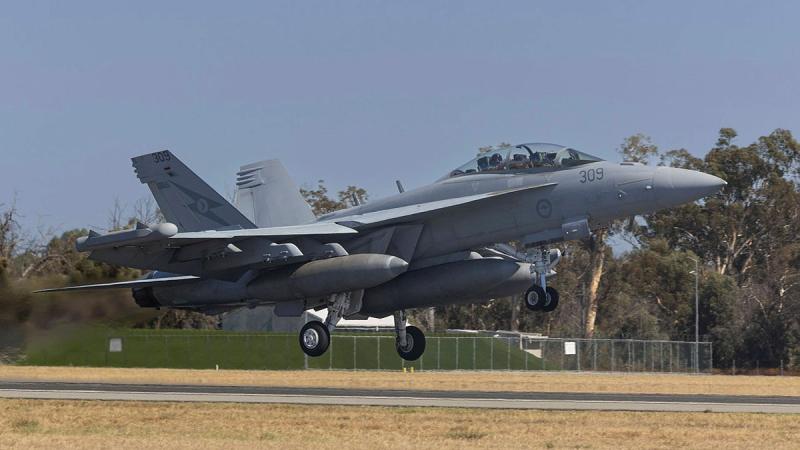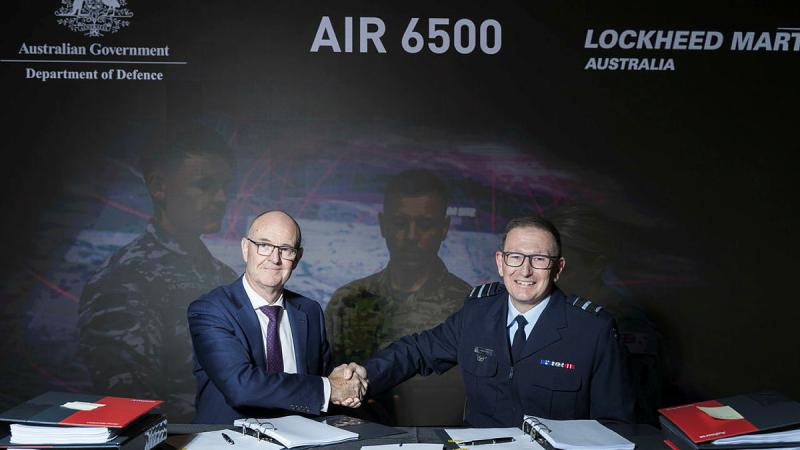Note: A complete summary of today’s Security Council meeting will be made available after its conclusion.
Briefing
TOR WENNESLAND, United Nations Special Coordinator for the Middle East Peace Process, briefing the Security Council via video link from Jerusalem, noted the start of the holiday period when the holy month of Ramadan coincides with Passover and Easter. Emphasizing that the status quo at the holy sites in Jerusalem must be respected, he urged all sides to refrain from unilateral steps that escalate tensions. “This should be a period for safe and peaceful religious reflection and celebration for all,” he said, calling on leaders to engage to that end and refrain from provocative actions and messages. Outlining he contents of the Secretary-General’s latest report on the implementation of Council resolution 2334 (2016) – which covers the period from 8 December 2022 to 13 March 2023 – he said Israeli settlement activities have continued through that time, in contravention of the resolution.
On 2 January, he said, the Israeli Government informed the High Court of Justice that it intends to legalize the outpost of Homesh, built on private Palestinian-owned land, including by repealing part of the 2005 Disengagement Law. Relevant legislation to that end is currently being advanced in the Israeli Knesset. On the same day, the Court gave the Government 90 days to explain why the outpost should not be evacuated. On 12 February, the Government announced its authorization of nine outposts in the occupied West Bank, while the Higher Planning Committee advanced plans for over 7,200 settlement housing units. Nearly 1,000 of those are in outposts that are in the process of legalization under Israeli law. Demolitions and seizures of Palestinian-owned structures continued across the occupied West Bank, including East Jerusalem, displacing 388 people. Israel’s High Court of Justice has given the Government until 23 April to submit its response to a petition to implement demolition orders in the village of Khan al-Ahmar, and a hearing on that matter is set for 1 May.
He voiced regret that daily violence increased significantly during the reporting period, with 82 Palestinians – including 1 woman and 17 children – were killed by Israeli security forces during demonstrations, clashes, security operations, attacks against Israelis and other incidents. More than 2,600 Palestinians were injured. In addition, 4 Palestinians were killed and 89 injured in a growing number of attacks by Israeli settlers. Meanwhile, 13 Israeli civilians – including one woman and three children, and one foreign national – were killed and 49 other Israelis were injured by Palestinians in shooting and ramming attacks, clashes and other incidents. Also citing search-and-arrest operations conducted by Israeli forces in the West Bank and high numbers of resulting detentions, he went on to outline several specific fatal incidents, which are increasing in Area A and elsewhere.
The reporting period has also been marked by a spate of violence against civilians, including acts of terror, he said. In occupied East Jerusalem, six Israelis, including a child and one foreign national, were killed in a Palestinian shooting attack outside a synagogue on 27 January. Three Israelis, including two children, were killed in a ramming attack on 10 February in occupied East Jerusalem. Shooting attacks by Palestinians killed three Israelis, in other parts of the West Bank on 26 and 27 February, and seriously injured three others in Tel Aviv on 9 March, one of whom later succumbed to his wounds. Following the 26 February killing by a Palestinian of two Israelis from the Har Bracha settlement in Huwwara, hundreds of settlers descended on the West Bank town and neighbouring villages, carrying out arson and other attacks. Amid the violence, 1 Palestinian man was shot and killed, while 387 others were injured.
In the aftermath of those fatal incidents, he said, Palestinian armed groups launched seven rockets from Gaza towards Israel, of which one fell short within the Strip, one landed in an open space inside Israel. Five were intercepted by the Israeli air defence system. In retaliation, the Israel Defense Forces conducted two air strikes against what it said were militant targets in Gaza, with no injuries reported. Noting that acts of provocation, incitement and inflammatory rhetoric also continued throughout the reporting period, he said some Fatah officials and social media pages – as well as Hamas and Palestinian Islamic Jihad – praised and glorified perpetrators of attacks against Israelis and called for additional attacks. One senior Fatah official called Israel a “fascist enemy that loves to murder and spill blood”. An Israeli minister conducted an inflammatory visit to Jerusalem’s holy sites, while several members of the Knesset praised the attacks by settlers against Palestinians and their property, adding that the town of Huwwara should be “wiped out” by Israeli forces.
In other developments, he said, the Israeli Government approved a series of measures against the Palestinian Authority, including the transfer of some $39 million to families of Israelis killed in Palestinian attacks from Palestinian Authority tax revenues withheld by Israel. The Government also announced that, following acts of terrorism by Palestinians against Israelis, it would reinforce security forces, broaden operations and take punitive measures against the perpetrators and their families. On 2 February, Israel’s Finance Minister announced that Israel would double – to approximately $30 million – the monthly deductions from tax revenues that it withholds. Meanwhile, the Palestinian Authority’s difficult financial situation has resulted in ongoing cuts to public sector salaries.
The United Nations continued to deliver vital humanitarian and development assistance in Gaza, he said, adding that the review period saw a higher flow of people and goods through Erez and Kerem Shalom crossings. Israel issued over 20,000 worker and business permits, the highest number in years. On 12 February, the League of Arab States convened a conference titled “Jerusalem: Resilience and Development”, in Cairo. Participants called for the establishment of a committee of legal experts tasked with helping give “justice to the Palestinian people”, and financing a mechanism to support small and medium-sized enterprises. On 26 February, senior Jordanian, Egyptian, Israeli, Palestinian and United States officials met in Aqaba, Jordan, reaffirming their commitment to all previous agreements, and to work towards a just and lasting peace. The parties committed to steps to de-escalate the situation on the ground, pause unilateral measures and prevent further violence, including through upholding the status quo at the holy sites.
Recalling the Council’s recent presidential statement reaffirming its commitment to a two-State solution and its opposition to terrorism and unilateral actions, he said that five European Union countries, along with the United Kingdom, have all issued statements condemning the increasing violence and calling for de-escalation. Expressing his own deep concern over the continued Israeli settlement-expansion, he said such actions “further entrench the occupation, fuel tensions and systematically erode the viability of a Palestinian State as part of a two-State solution”. Israeli settlements have no legal validity and constitute a flagrant violation of international law. Calling on the Government to halt them immediately, he condemned all acts of violence against civilians by any side, and urged leaders to help calm the situation, avoid spreading inflammatory rhetoric and speak up against those seeking to incite and escalate the situation.
It is critical to de-escalate the situation and move towards re-establishing a political horizon, he said, noting that – if implemented – the steps outlined in Aqaba would be an important start to reversing negative trends on the ground. At the same time, the absence of intra-Palestinian unity continues to undermine Palestinian national aspirations, he said, calling on all factions to take concrete steps to reunify Gaza and the occupied West Bank, including East Jerusalem, under a single, democratic Government. Finally, he called on United Nations Member States to support the United Nations Relief and Works Agency for Palestine Refugees in the Near East (UNRWA) with sustainable funding to protect the delivery of vital services to millions of Palestine refugees, which remains crucial to stability in the region, and reiterated his staunch support for a two-State solution.
Statements
LINDA THOMAS-GREENFIELD (United States), expressing concern over sustained violence in Israel and the West Bank, said that 2023 is on track to surpass the staggering levels of violence seen in 2022. She rejected such violence, also stressing that accountability and justice should be pursued with equal vigour and resources in all cases of extremist violence. Further, she urged the parties to refrain from unilateral actions and unhelpful rhetoric that increase tensions as April’s confluence of religious holidays approaches. The United States will support all measures to restore calm and support peace, and she called on Council members and regional parties to join in such efforts. Emphasizing that a two-State solution remains the best way to ensure that Israelis and Palestinians can live side-by-side in peace and security, she urged – even though prospects feel remote at the moment – that a “horizon of hope” be preserved. If the parties commit to peace and dialogue, a “brighter future is possible”, she added – one of equal measure of freedom, security and prosperity for all.
ALBANA DAUTLLARI (Albania) commended the parties for the understanding reached in Sharm el-Sheikh on 19 March. Noting that such level of participation had not been seen in nearly a decade, she voiced hope that meetings under such format will continue and help de-escalate and lower tensions on the ground, especially now that the region is approaching its religious festivals. She commended the United States and Jordan for facilitating the meeting and Egypt for organizing and hosting it. Voicing concern about the situation in the West Bank, East Jerusalem and Gaza, she underscored that the protection of civilians is an obligation under international humanitarian law and must be fully observed by all and in all circumstances. Condemning the terrorist attacks against Israel, she said those are unacceptable and should not be tolerated. Noting the alarming increase in attacks since the beginning of 2023 on synagogues in Jerusalem and Tel Aviv, as well as terrorist attacks on civilians, she said such acts must be condemned and perpetrators brought to justice.
DMITRY A. POLYANSKIY (Russian Federation) said that, since the beginning of 2023, the world has witnessed increased incidences of violent raids by Israeli forces, attacks by settlers and cases involving the disproportionate use of force. Further, daily reports of mass arbitrary arrests accompany a tense situation around the holy places of Jerusalem, which is all the more urgent in the context of Ramadan. While confirming Israel’s right to ensure its security, he urged restraint from provocative, hateful rhetoric that will only complicate the situation, such as the dangerous, irresponsible statement recently made by Israel’s Finance Minister. He also expressed concern over the Knesset’s adoption of laws depriving Israeli Arabs of citizenship and rejecting medical care for Palestinian prisoners. The situation will be explosive until the parties reach mutually acceptable agreement on all final-status issues, he underscored, stating that Israeli settlements are violations of international law and a main barrier to the resumption of negotiations between Israel and Palestine – for which there is no alternative. He added that the United States is trying to impose an economic peace on Palestinians, rather than satisfying their legitimate aspirations for an independent State.
JAMES KARIUKI (United Kingdom), commending Israeli and Palestinian officials for their recent engagement in Jordan and Egypt, said it is now critical for both parties to abide by the commitments made there and take forward confidence-building measures. The Palestinian Authority must resume security cooperation with Israel, fight against terror and incitement and maintain security in Area A. Condemning indiscriminate rocket fire from Gaza, he said that, while Israel has a legitimate right to self-defence, unilateral incursions that result in the deaths of innocent Palestinians only escalate tensions. Israeli security forces must operate in accordance with international law, show restraint in the use of live fire and conduct thorough investigations into the deaths of Palestinian civilians. He also emphasized that Israel must cease its approval of settlements and legalization of outposts in Occupied Palestinian Territory, particularly in East Jerusalem, voicing the United Kingdom’s opposition to the repeal of the Disengagement Law – which further undermines prospects for a two-State solution and damages any renewed efforts at de-escalation – and condemning all forms of violence committed by settlers.
NAME TO COME (Brazil), voicing concern about the situation in Israel and Palestine, warned against an escalation of violence, without a genuine commitment from all parties to create conditions for the peaceful celebrations of upcoming religious holidays. All parties must exercise maximum restraint and avoid provocations, including extremist rhetoric, he said, welcoming the joint communiqué from the 19 March meeting in Sharm el-Sheikh on the necessity of both parties to actively prevent any actions that would disrupt the sanctity of the holy sites. He also thanked Egypt, Jordan and the United States for their diplomatic efforts to bring together Israeli and Palestinian authorities and emphasized the need to pursue confidence building measures to enhance mutual trust, create a political horizon and address outstanding issues through direct dialogue. Noting the escalation of violence, he stressed that all violations of international humanitarian law must immediately stop. Israel must immediately cease all settlement activities in the Occupied Palestinian Territory, including East Jerusalem, in compliance with resolution 2334 (2016). He further called on Israel to stop the continued demolitions and seizures of Palestinian structures, as well as the displacement of Palestinian families.
…








